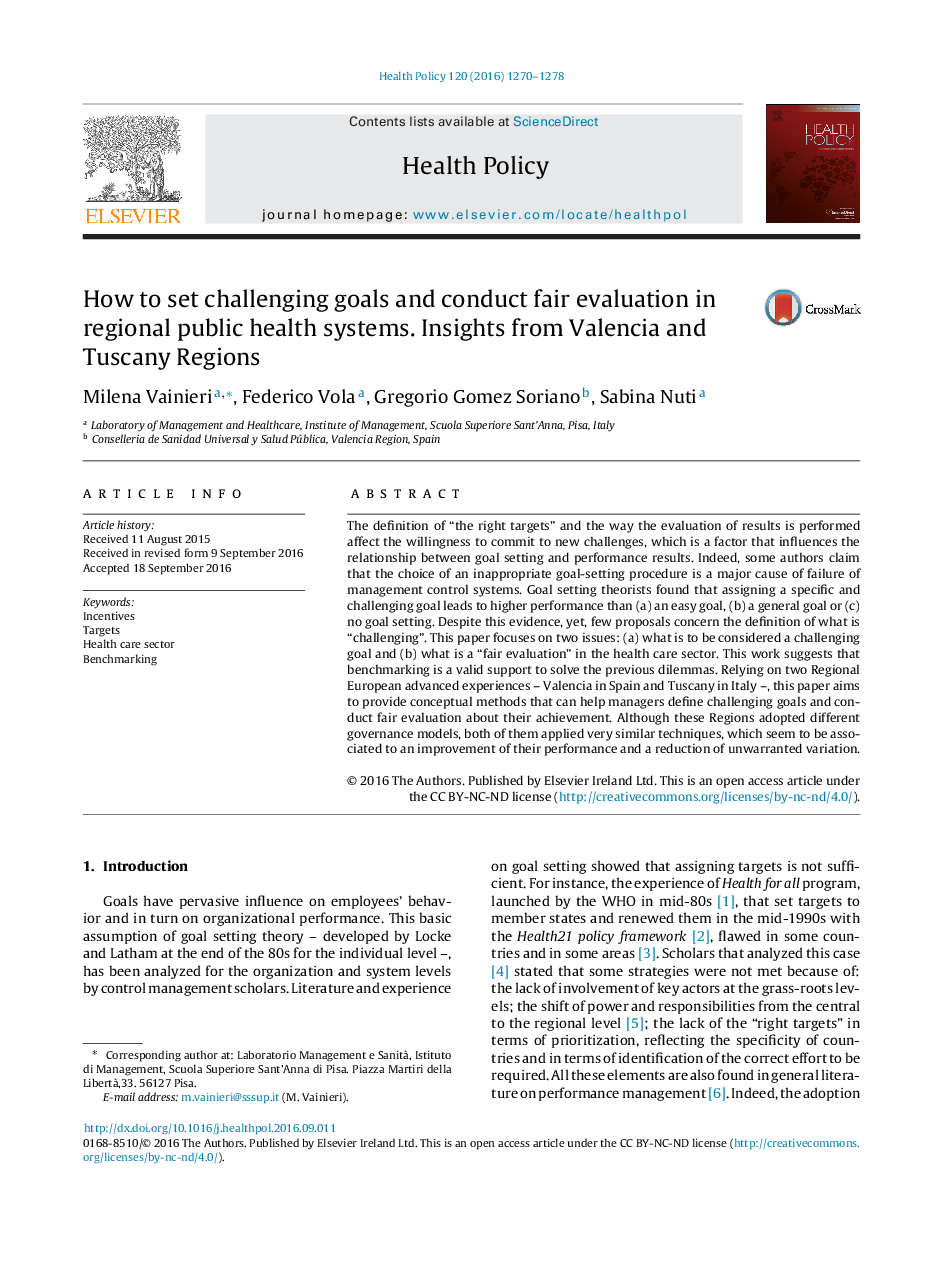| Article ID | Journal | Published Year | Pages | File Type |
|---|---|---|---|---|
| 5723430 | Health Policy | 2016 | 9 Pages |
â¢We propose a method to define what is challenging in setting goals.â¢We propose a method to define what is fair in goal assessment.â¢These methods can help regional health care systems to improve performance.â¢These methods can help regional health care systems to reduce variability.â¢These methods were successfully applied in two European Regions which adopted different governance models.
The definition of “the right targets” and the way the evaluation of results is performed affect the willingness to commit to new challenges, which is a factor that influences the relationship between goal setting and performance results. Indeed, some authors claim that the choice of an inappropriate goal-setting procedure is a major cause of failure of management control systems. Goal setting theorists found that assigning a specific and challenging goal leads to higher performance than (a) an easy goal, (b) a general goal or (c) no goal setting. Despite this evidence, yet, few proposals concern the definition of what is “challenging”. This paper focuses on two issues: (a) what is to be considered a challenging goal and (b) what is a “fair evaluation” in the health care sector. This work suggests that benchmarking is a valid support to solve the previous dilemmas. Relying on two Regional European advanced experiences - Valencia in Spain and Tuscany in Italy -, this paper aims to provide conceptual methods that can help managers define challenging goals and conduct fair evaluation about their achievement. Although these Regions adopted different governance models, both of them applied very similar techniques, which seem to be associated to an improvement of their performance and a reduction of unwarranted variation.
